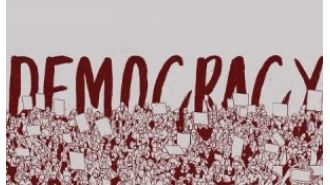Protect IP (fka COICA)
There's a legislative effort underway in the US Congress to pass a bill that attempts to "counter the illegal online sale of counterfeit goods." In its earlier incarnation, it was called COICA. Now it is called Protect IP. Regardless of the name, I've never liked this legislation for a number of reasons.
First, it provides for the ability of law enforcement officials, and even rights holders via injunctive actions, to meddle with the core architecture of the Internet, via shutting down domain name services (DNS), requiring "servers of links" to remove links to purportedly offending services, and by cutting off advertising and payment services.
Second, it tips the delicate balance of power set up in the Digital Millenium Copyright Act (DMCA) in favor of rights holders and away from innovative new services. The DMCA works well and rights holders have been very successful getting infringing material taken down when they request it.
Entrepreneurs who build innovative new Internet services like Google, YouTube, Facebook, Twitter, etc will inevitably see rights holders come after them for aiding and abetting infringers. The purpose of services like Google, YouTube, Facebook, Twitter, etc is not to aid infringers, it is to allow the rapid and unfettered discovery of information throughout the world. Ultimately these services enable and enhance free speech and learning throughout the world. And a small byproduct of that is rights infringers will use these services too. Giving law enforcement officials and rights holders powerful new tools to go after important and innovative new services with little or no due process is unecessary and potentially very dangerous.
When asked about Protect IP recently, Eric Schmidt, Chairman of Google, said "I would be very, very careful if I were a government about arbitrarily [implementing] simple solutions to complex problems."
The entire set of issues surrounding copyright in an increasingly digital world are extremely complex. There are no simple solutions. Trying to recreate a world that has come and gone is not going to work. Technology is a genie that cannot be put back into a bottle. We are better served imagining, inventing, and financing new models and new services that will allow creative activities to thrive in the digital world. We are doing that with investments in new services like Kickstarter, Shapways, Etsy, and others. And others are doing the same with services like Netflix, Rdio, Spotify, Pandora and many more. There is a new model for distributing and profiting from copyrighted material and it is working. Pirates will always exist. But if rights holders make it easy to get their works in Internet native models, they can and will have bright futures. If they spend their money hiring lobbyists and buying off legislators, they will fail. But they might bring down some great new companies along the way. And that would be a shame.







